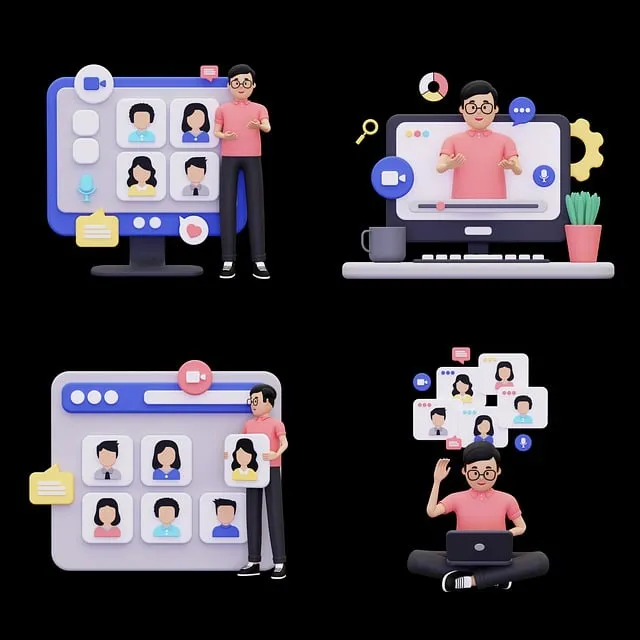Confidential computing empowers non-profit organizations and journalists to handle sensitive data securely. Techniques like encryption, anonymization, and anonymizing search capabilities protect personal information while facilitating ethical investigative journalism. For reporters under surveillance, these tools are game-changers, enabling access to crucial data without exposing their identities or sources. Successful implementations include secure multi-party computation protocols, fostering trust within the non-profit community for sensitive data sharing. Ultimately, confidential computing enhances transparency and security in investigations, revolutionizing how journalists uncover global crimes and corruption while upholding stringent data privacy standards.
In an era where data privacy is paramount, non-profit organizations (NGOs) worldwide are embracing confidential computing to protect sensitive information. This innovative approach ensures secure data processing without compromising transparency, empowering NGOs and journalists investigating crime with robust tools. The article explores ‘Understanding Confidential Computing’, delving into its role in safeguarding data for NGOs, particularly highlighting the ‘Anonymizing Search’ as a game-changer for journalists seeking privacy while uncovering truths. Global implementation challenges and success stories are also examined, along with future prospects enhancing security through technology.
- Understanding Confidential Computing: Protecting Sensitive Data in Non-Profit Organizations
- The Anonymizing Search: Empowering Journalists with Privacy Tools
- Global Implementation: Challenges and Success Stories of Confidential Computing in NGOs
- Future Prospects: Enhancing Transparency and Security through Technology
Understanding Confidential Computing: Protecting Sensitive Data in Non-Profit Organizations

Confidential computing is an emerging technology that focuses on securing sensitive data within a trusted environment, ensuring privacy and confidentiality. This concept is particularly relevant for non-profit organizations that handle vast amounts of personal and confidential information. By employing techniques such as encryption, secure processing, and anonymization, these organizations can protect data from unauthorized access or leaks, fostering trust among their stakeholders.
For journalists investigating sensitive crimes, confidential computing offers a powerful tool to safeguard their research. The technology enables them to anonymize search queries and process data securely without revealing their sources or methods. This protects both the journalists’ integrity and the privacy of individuals involved in their investigations, allowing for more robust and responsible reporting while maintaining the highest ethical standards.
The Anonymizing Search: Empowering Journalists with Privacy Tools

In the realm of confidential computing, one powerful application is the anonymizing search, which has significant implications for journalists worldwide. This tool enables reporters investigating sensitive topics like organized crime or political corruption to conduct searches while preserving their sources’ and own identities. By utilizing advanced encryption techniques, the anonymizing search ensures that digital footprints are minimized, offering a secure environment for investigative journalism.
For journalists working in environments with heightened surveillance or repressive regimes, this technology is a game-changer. It allows them to access crucial information without exposing their personal details, fostering a safer and more robust investigative process. With the ability to anonymize search queries, journalists can delve deeper into complex cases, uncovering facts and evidence that might otherwise remain hidden, thereby enhancing their reporting’s impact and integrity.
Global Implementation: Challenges and Success Stories of Confidential Computing in NGOs

Non-profit organizations worldwide are increasingly adopting confidential computing to protect sensitive data while enabling innovative services. This global trend brings both challenges and success stories, particularly in the realm of anonymizing search for journalists investigating crime. One significant challenge is ensuring data privacy during collaborative efforts, as multiple stakeholders may have access to sensitive information. NGOs must implement robust security measures to prevent unauthorized disclosures and maintain the anonymity of sources.
Despite these hurdles, several NGOs have achieved remarkable milestones in implementing confidential computing. For instance, some organizations successfully utilize secure multi-party computation (SMPC) protocols to facilitate data analysis without exposing individual records. This approach has proven valuable for journalists seeking to analyze large datasets anonymized from various sources, enabling them to uncover crucial insights into criminal activities while safeguarding the identities of informants. Such success stories highlight the potential of confidential computing to foster trust and encourage sensitive data sharing in the non-profit sector.
Future Prospects: Enhancing Transparency and Security through Technology

In the future, confidential computing has the potential to revolutionize how non-profit organizations and journalists work together to expose crimes and corruption worldwide. By leveraging advanced technologies like anonymizing search capabilities, data encryption, and secure multi-party computation, sensitive investigations can be conducted with enhanced transparency and security.
This innovative approach ensures that personal data remains protected while still enabling meaningful analysis and insights. For journalists investigating sensitive matters, this means they can access crucial information without compromising the privacy of individuals involved. As a result, it fosters a more robust and ethical investigative journalism ecosystem, where truth-seeking aligns with stringent data security standards.
Confidential computing presents a powerful tool for non-profit organizations worldwide, offering enhanced data protection and privacy. By leveraging techniques such as anonymization in search capabilities, NGOs can empower journalists to investigate sensitive issues without compromising subject privacy, fostering transparency while safeguarding vital information. As we look ahead, the global implementation of confidential computing continues to evolve, presenting both challenges and inspiring success stories. Ultimately, this technology has the potential to revolutionize data handling practices within NGOs, ensuring a secure and transparent future for non-profit operations worldwide.
